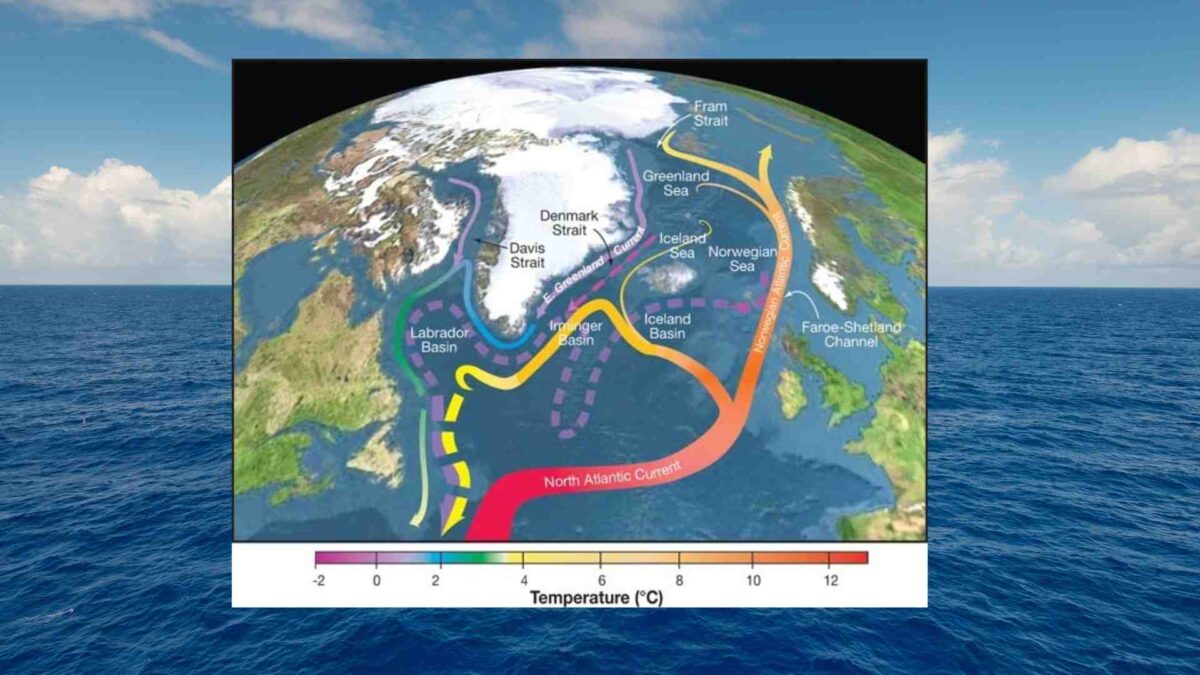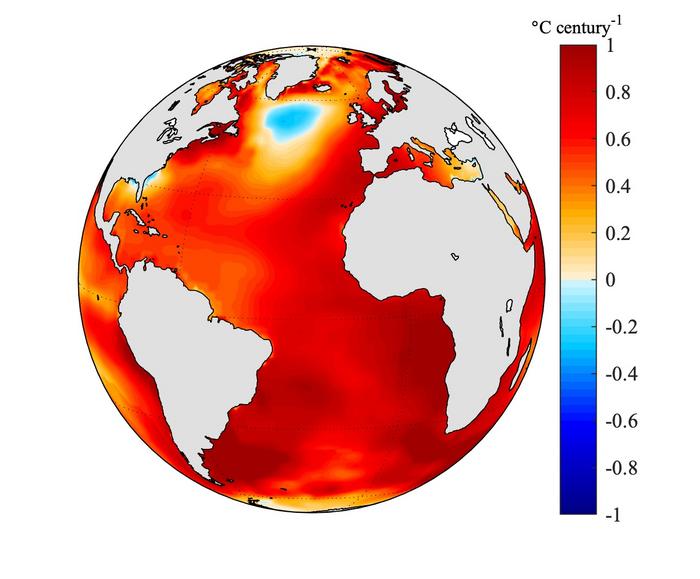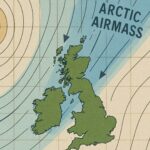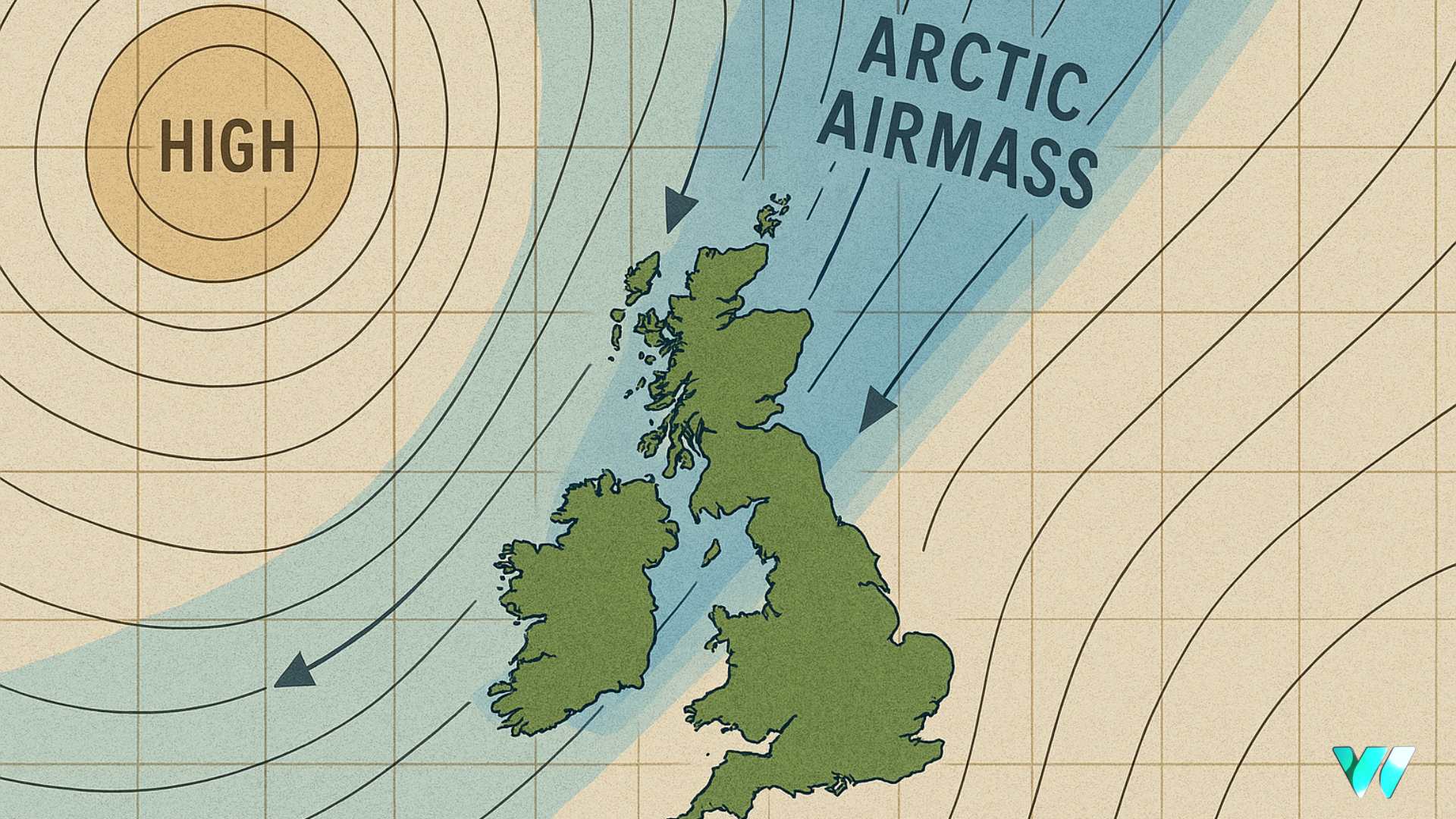
Major Atlantic Current Weakens: What It Means for Ireland

A persistent patch of cold water south of Greenland — long a mystery to scientists — is now being linked to a major weakening of the Atlantic Meridional Overturning Circulation (AMOC), one of the most important systems driving climate in the North Atlantic, including Ireland and Britain.
In a new study, researchers at the University of California, Riverside found strong evidence that the AMOC — a vast “conveyor belt” of ocean currents that carries warm, salty water northward and colder water southward at depth — has been weakening steadily for over a century.
This slowdown, the scientists say, is the only explanation that fits with observed changes in ocean temperatures and salinity over the past 100 years. As less warm water reaches the sub-polar North Atlantic, the region near Greenland has cooled — creating what’s known as the “South Greenland cold spot.”
While this might seem distant, the implications are much closer to home. A weakening AMOC could have major consequences for the climate of Ireland and Britain, both of which are strongly influenced by North Atlantic ocean currents.
“Changes in the AMOC can shift the position of the jet stream and affect rainfall patterns and storm tracks over Western Europe,” said study co-author Kai-Yuan Li. “That means more unsettled weather, with potentially drier summers or wetter winters, depending on how the system evolves.”

The AMOC plays a key role in moderating temperatures across the British Isles. A weaker current may reduce the flow of warm tropical waters northward, possibly leading to cooler winters in Ireland and the UK — even as global average temperatures continue to rise.
It may also disrupt the stability of weather systems, increasing the risk of prolonged wet or dry spells and more extreme events. Marine ecosystems around Ireland and Britain could also be affected, as changes in salinity and temperature alter fish distribution and breeding grounds.
The findings challenge newer climate models that had predicted a strengthening of the AMOC due to reductions in atmospheric pollution. These models, the researchers argue, failed to match real-world data and may underestimate the risks of a slowdown.
“Our results show that only the models with a weakening AMOC match what’s actually happening in the ocean,” said lead author Dr. Wei Liu. “That gives us more confidence that this trend is real and ongoing.”
With greenhouse gas emissions continuing to rise, the weakening is likely to persist — raising urgent questions about how climate patterns across Ireland, Britain, and the wider North Atlantic region may shift in the decades ahead.
“We’re seeing clear signs of long-term change,” said Li. “And for places like Ireland and the UK, which sit right on the edge of this ocean system, the impacts could be significant.”
The study was published in Communications Earth & Environment.
Share this WeathÉire story:






